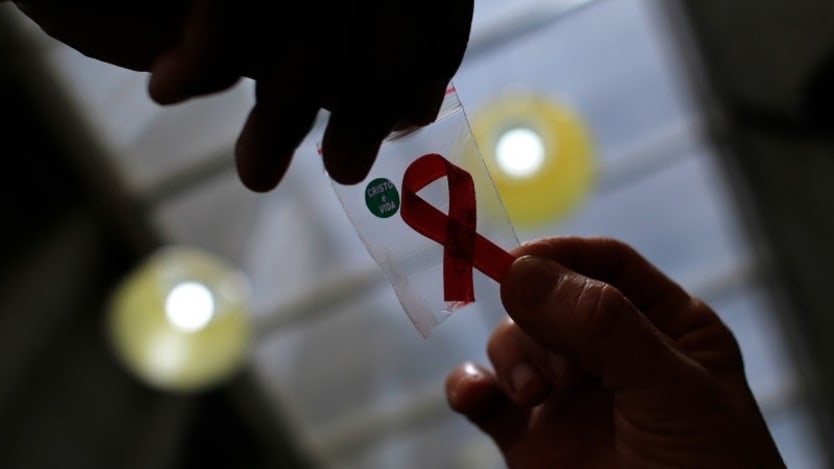
MANILA — The coronavirus pandemic is straining donor countries’ budgets and affecting other sources of revenue for low- and middle-income countries, raising questions on how programs for HIV/AIDS can be sustained.
A number of high-income countries’ economies have been hit hard by the pandemic. Even if they maintain aid levels at 0.7% of their gross domestic product, total aid volume could be smaller as donors’ own revenue collection is reduced, UNAIDS Executive Director Winnie Byanyima said last week during an AIDS 2020 preconference session. This can have a huge impact on low-income countries heavily reliant on foreign aid for their HIV response.
AIDS 2020 news
Our team of reporters will be covering the AIDS 2020 virtual conference. Sign up to our special edition newsletter to receive the latest, directly in your inbox.
Byanyima also identified the impact of COVID-19 on remittances and debt. Remittances, a big source of revenue for a number of low- and middle-income countries, have also declined, leaving gaps in domestic resources. Mounting debt in many of these countries could also affect HIV financing.
“So we have a very dire situation for both middle-income but particularly so for low-income countries of Africa and for the HIV response because [of] the hit on ODA as well,” Byanyima said, referencing official development assistance.
One of the solutions she championed was debt relief, which she said should be more long-term than six months, and substantial.
A number of countries have been borrowing large amounts of money in response to COVID-19, but many of them have already been in debt distress prior to the crisis. Countries such as Zambia, for example, had cut spending on health and education as government debt servicing increased, Byanyima said.
Countries such as Zimbabwe could also benefit from such policies. Raymond Yekeye, operations director of the country’s National AIDS Council, said the government is in a dilemma, as it is not eligible for funding from financial institutions such as the World Bank because of the country’s arrears.
“Let’s learn from the global financial crisis. When it happened, and austerity was coming … rich countries woke up to the reality which was that … big companies had been and still are cheating on taxes.”
— Winnie Byanyima, executive director, UNAIDSZimbabwe and other countries not currently on their debt service can only access financing through trust funds, according to a statement from the World Bank in May.
“Unfortunately, we are in an emergency situation, and to combine nonpayment of arrears to an emergency situation creates a double-edged sword for the country. So we certainly are experiencing challenges,” Yekeye said. He said though that the national HIV response has received support from The Global Fund to Fight Aid, Tuberculosis and Malaria and the U.S. President's Emergency Plan for AIDS Relief.
Addressing tax avoidance and evasion is another solution panelists put forward during the session. Byanyima said closing tax loopholes could benefit both high-income and low-income countries.
“Let’s learn from the global financial crisis. When it happened, and austerity was coming … rich countries woke up to the reality which was that … big companies had been and still are cheating on taxes,” she said, adding that it led to a process of corporate tax reform that has brought more money to rich countries’ coffers.
Masood Ahmed, president at the Center for Global Development, said the international response to date to support countries in need of additional resources “has been a fraction of what is needed.” A possible reason could be that the impact of COVID in low-income countries has been a little slower coming or not as visible internationally, he said.
“So far, we have had some talk and some delivery on new money from the international financial institutions … [and] an effort by the G-20 to put in place a moratorium, standstill on debt service payments for some of the debt that is owned by the poorest countries. If you add all this up, it’s [a] few tens of billions of dollars, at a time when the needs run into hundreds of billions of dollars,” he said.
“The IMF [International Monetary Fund] for example has a trillion dollars in its balance sheet, but we need to start seeing more than a few billions, a few tens of billions, actually working their way out, and working their way out quickly,” he added.
Update, Jul. 6, 2020: This article has been updated to reflect that UNAIDS’ Byanyima spoke during an AIDS 2020 preconference session last week.
Search for articles
Most Read
- 1
- 2
- 3
- 4
- 5








